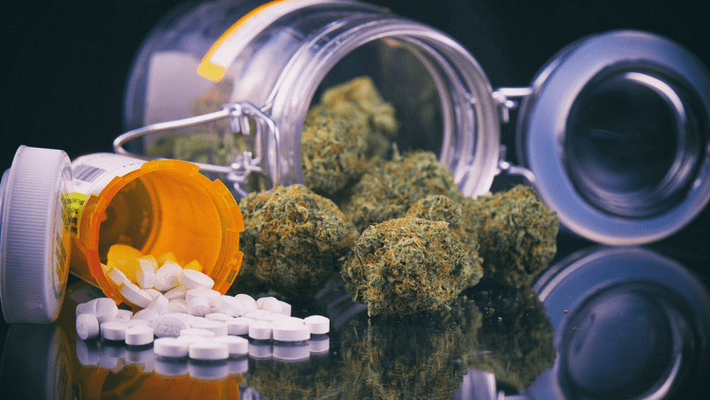
Marijuana Compound Shows Some Potential for Treating Opioid Addiction
Published on 2/5/17
A review of previous research concludes that compounds in marijuana are effective at suppressing withdrawal symptoms like cravings in those addicted to opioids. Marijuana remains difficult to gain access to for research, but it's become abundantly clear that more research is needed after seeing even small success curbing the problems arising from the country's opioid epidemic. Opioids include legal pharmaceuticals like hydrocodone, oxycodone, morphine, and the illegal drug, heroin, all of which can be extremely addicting. The review featured a study on rats in which the they learned to administer their own heroin, and a study in humans, both of which showed that the cannabinoid CBD helped effectively reduce cravings of heroin addiction for about 1 week.
In her review, Hurd looked at previous animal and human studies examining the potential of one particular marijuana compound — called cannabidiol, or CBD — for treating opioid addiction. For example, a study in rats published in 2009 in the Journal of Neuroscience found that CBD decreased heroin cravings in rats that had previously been trained to self-administer heroin. And a small study conducted in humans, published in August 2015 in the journal Neurotherapeutics, showed that taking CBD seemed to help reduce cravings in people addicted to heroin. This effect lasted for a week after the CBD was administered, Hurd noted in the new review.
One advantage of cannabidiol is that, unlike another marijuana compound —tetrahydrocannabinol, or THC — it does not give users a high, and therefore, its use does not involve a significant risk of misuse, according to the new review. The compound is also generally safe to use in adults and possibly in children, as suggested by tests of the compound in young patients with epilepsy, according to the review
